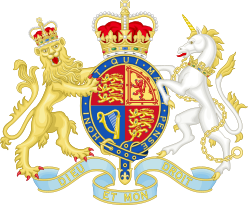This article needs additional citations for verification .(May 2019) |
 | |
| Department overview | |
|---|---|
| Formed | 1953 |
| Preceding agencies | |
| Dissolved | 1966 |
| Superseding Department | |
| Jurisdiction | United Kingdom |
The Ministry of Pensions and National Insurance (MPNI) was a British government ministry responsible for the administration and delivery of welfare benefits. It was headed by the Minister of Pensions and National Insurance.